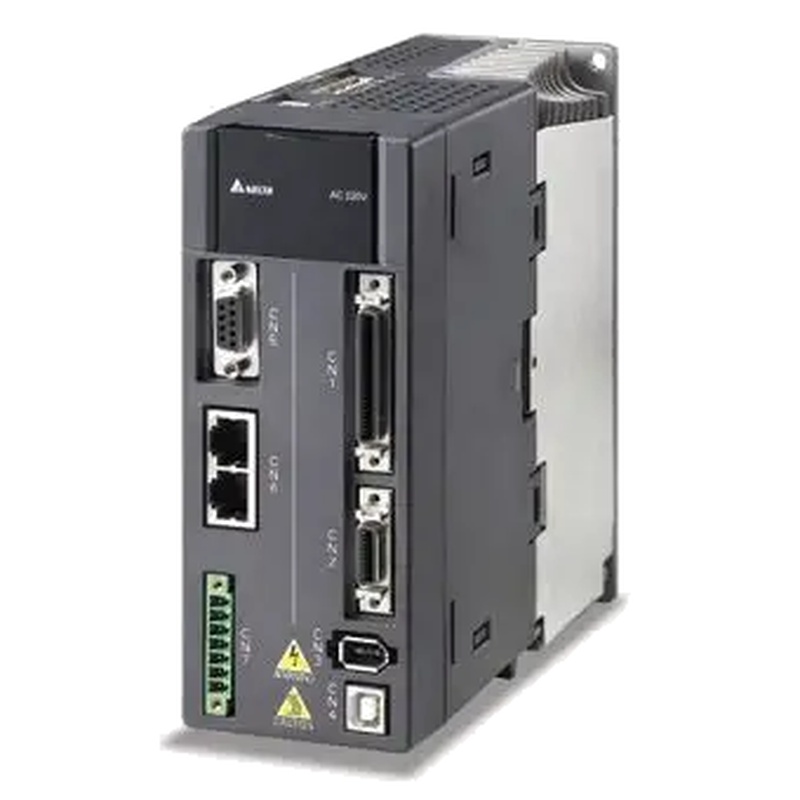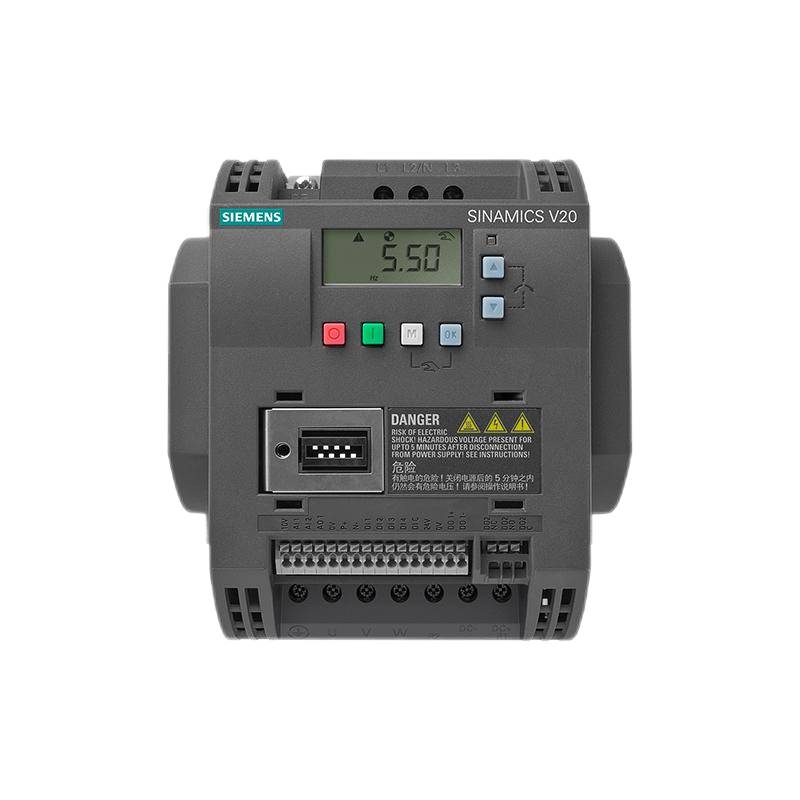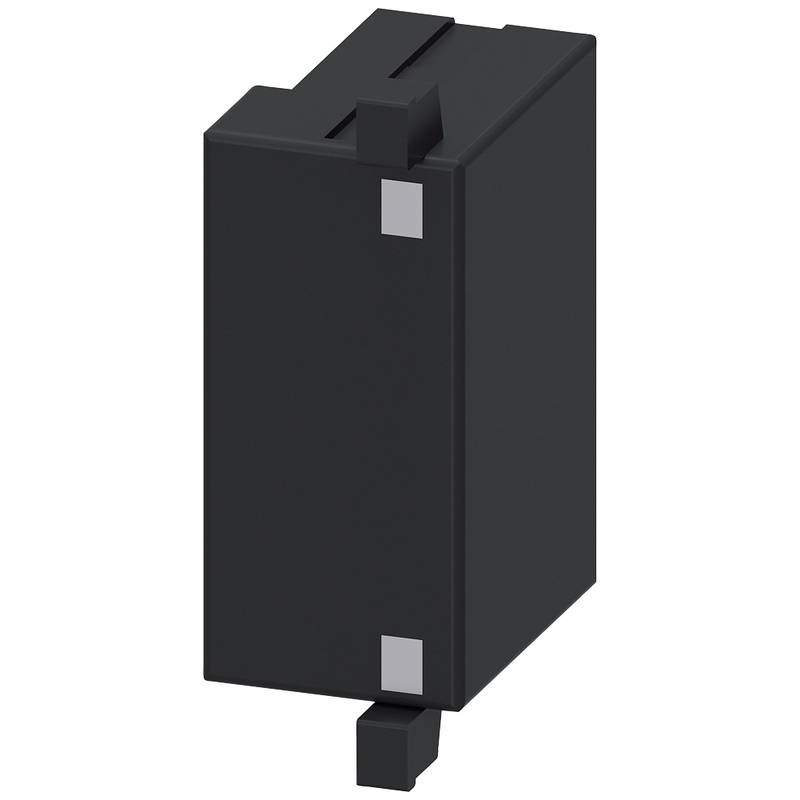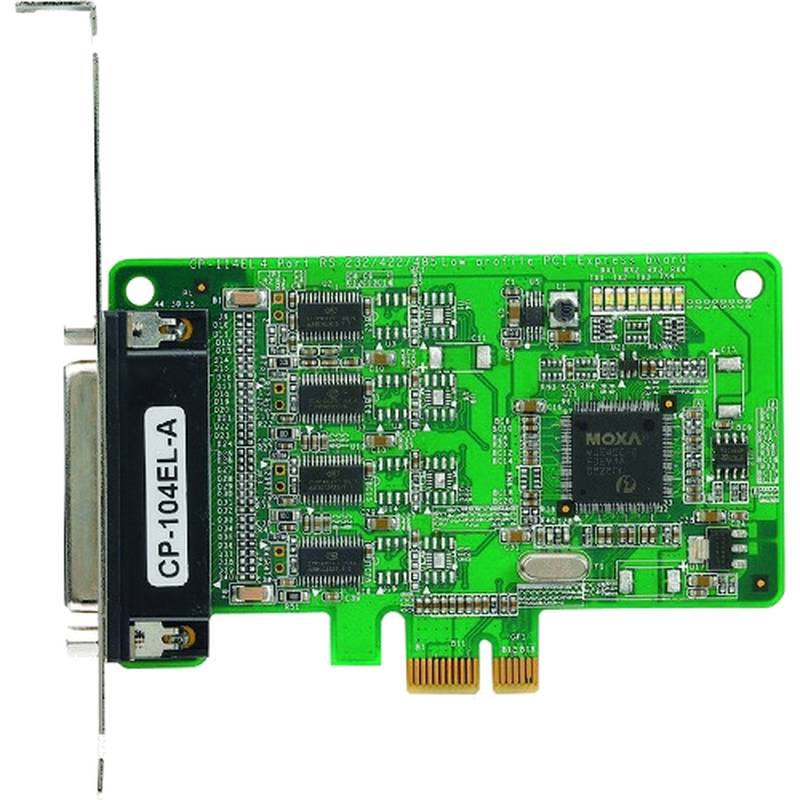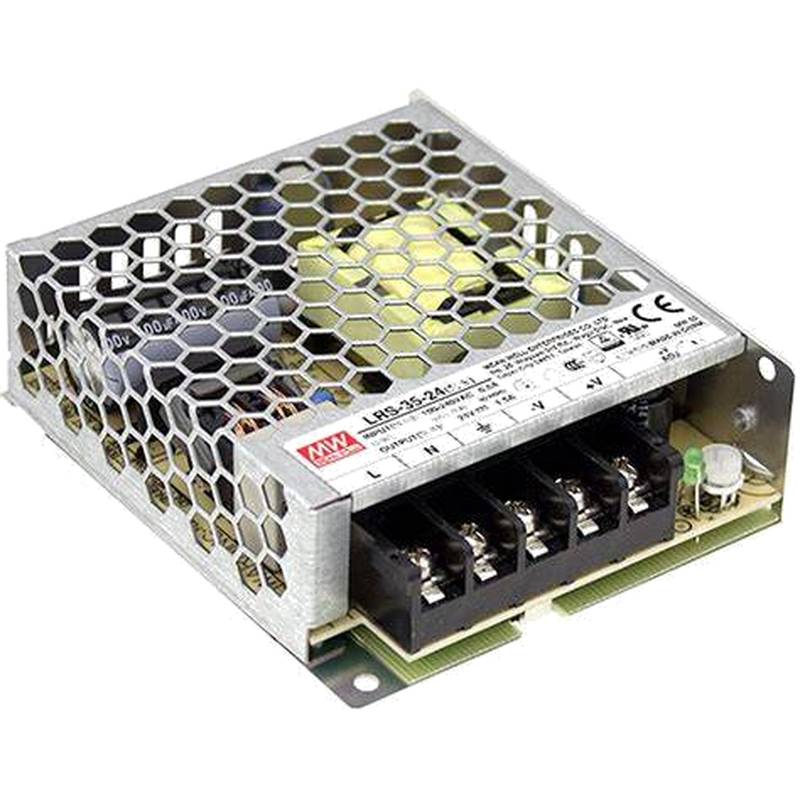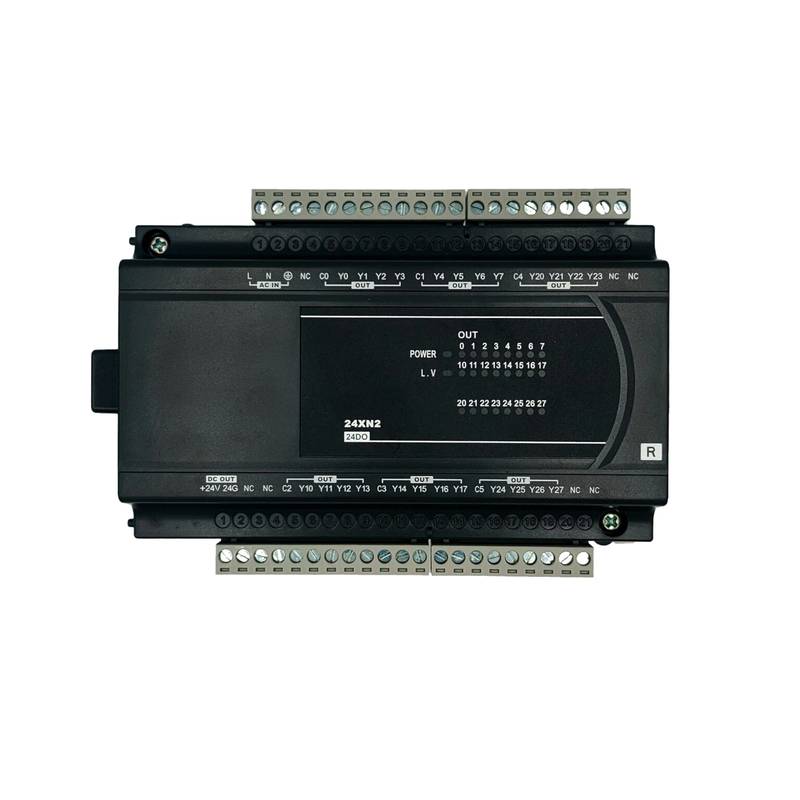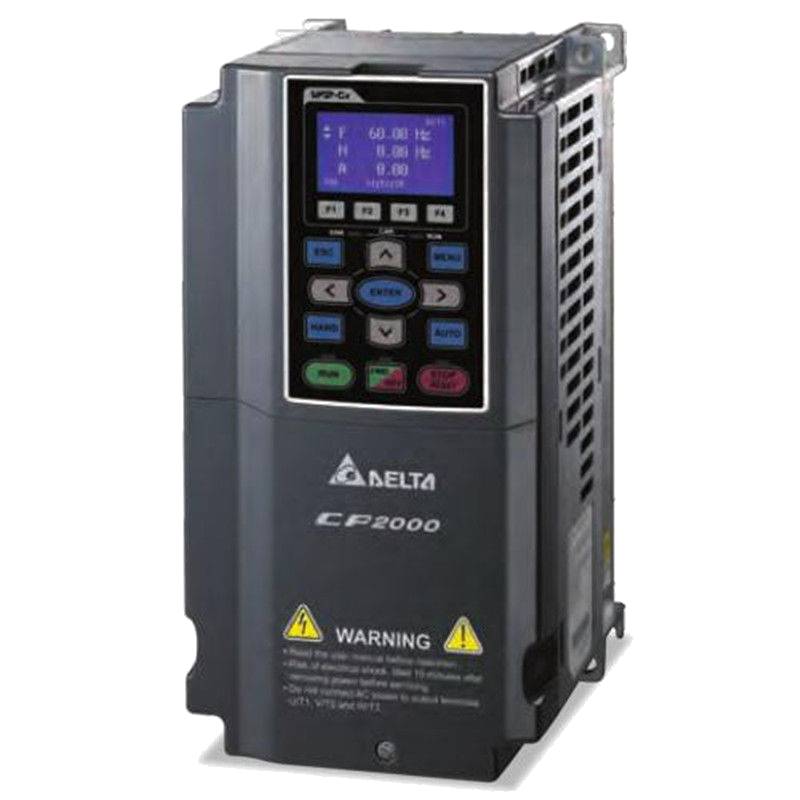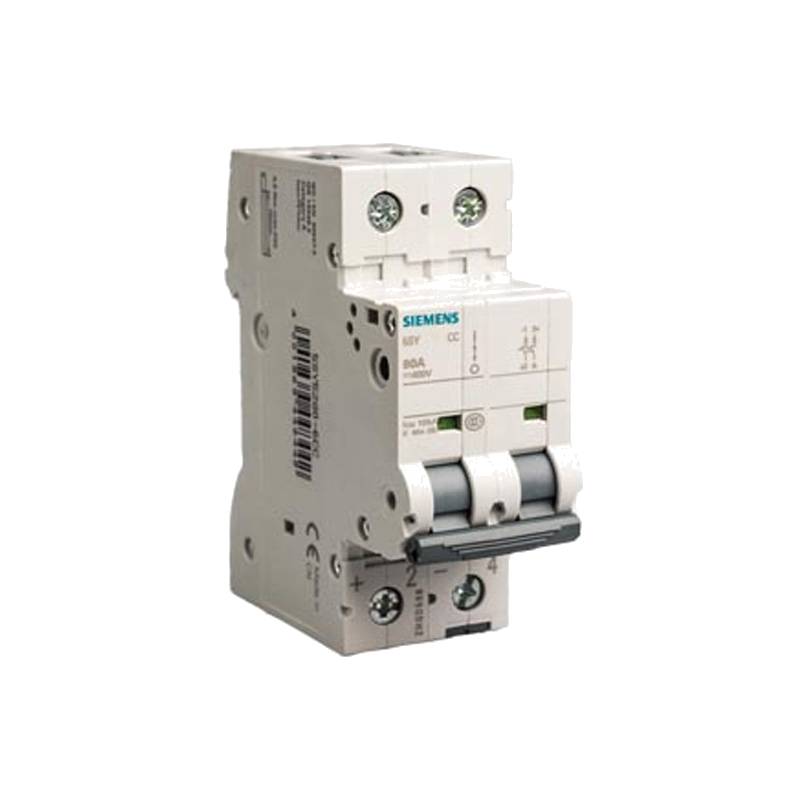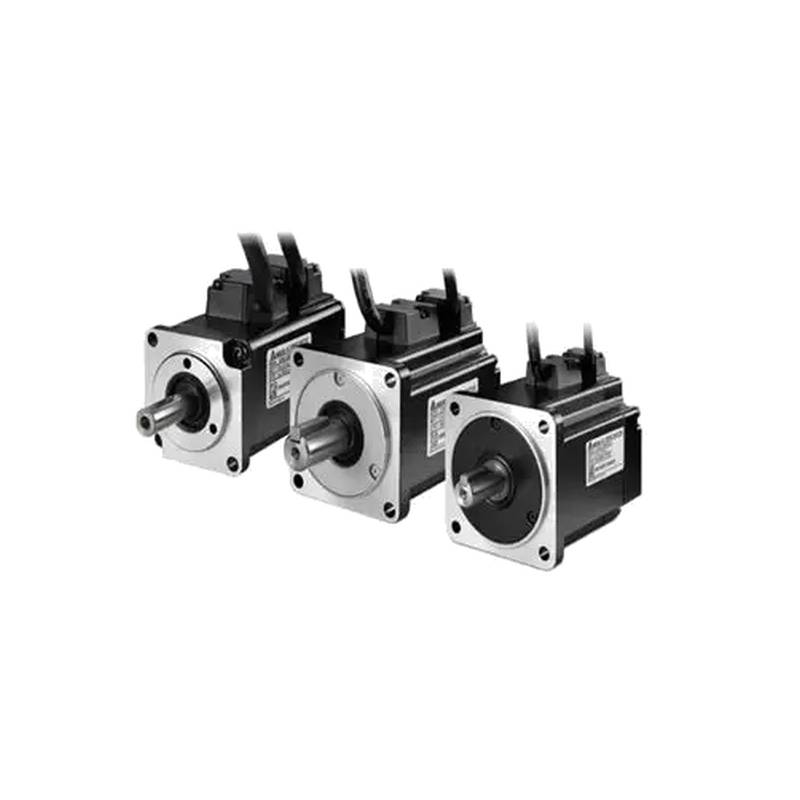
The Delta ASD-B3-0721-M Low Voltage Three Phase Servo Drive stands as a robust solution for industrial automation, delivering exceptional precision and responsiveness for demanding motion control applications. This drive boasts a compact design, advanced control algorithms, and comprehensive protection features, making it ideal for a wide array of automated machinery. Key technical specifications include a wide input voltage range of 200-240V AC, an output power of 750W (1HP), and support for various feedback types, ensuring seamless integration into diverse system architectures.
| Feature | Specification |
| :---------------------- | :--------------------------------- |
| Model | ASD-B3-0721-M |
| Input Voltage | 200-240V AC |
| Output Power | 750W (1HP) |
| Phase | Three Phase |
| Control Method | Position, Velocity, Torque |
| Communication Interface | CANopen, Modbus RTU |
| Encoder Support | Incremental, Absolute (various) |
| Protection Functions | Over-current, Over-voltage, etc. |
| Dimensions (H x W x D) | 150 x 60 x 120 mm (approx.) |
Core Features & Market Positioning
The Delta ASD-B3-0721-M distinguishes itself through its high-speed processing capabilities and sophisticated motion control algorithms, enabling sub-millisecond response times crucial for precision automation. Its advanced digital signal processor (DSP) ensures smooth operation and accurate trajectory tracking, even under dynamic load conditions. The drive's dual-core architecture allows for simultaneous execution of motion control and communication tasks, enhancing overall system efficiency. This competitive edge positions the ASD-B3-0721-M as a premium choice for applications demanding superior performance and reliability, surpassing many standard servo drives in its class. Its integration of advanced encoder feedback processing, including support for high-resolution absolute encoders, further solidifies its standing in high-precision manufacturing environments.
Key Application Scenarios
This servo drive is exceptionally well-suited for a variety of automated industrial processes that require exact positioning and controlled movement. Common applications include automated assembly lines, CNC machinery, packaging equipment, printing presses, and robotic arms where precision and speed are paramount. The Delta ASD-B3-0721-M's ability to handle complex motion profiles makes it ideal for tasks such as high-speed pick-and-place operations, intricate cutting or welding paths, and the precise dispensing of materials. Industries benefiting from this drive include electronics manufacturing, automotive production, food and beverage processing, and textiles.
Practical System Integration Guidance
Integrating the Delta ASD-B3-0721-M into an existing system is streamlined due to its flexible connectivity options. The drive supports standard communication protocols like CANopen and Modbus RTU, facilitating easy integration with PLCs and HMIs. Wiring involves connecting the main power supply, motor phases, and encoder feedback. The drive features clear terminal blocks for simplified connections. For commissioning, Delta provides user-friendly software tools, such as the Delta Drive Tool, which allows for parameter configuration, tuning, and diagnostics. Initial setup typically involves setting motor parameters, selecting feedback types, and configuring basic motion control profiles.
Operation and Risk Mitigation
Safe operation of the Delta ASD-B3-0721-M necessitates adherence to electrical safety standards and proper installation practices. Ensure the drive is grounded correctly and that all power connections are secure to prevent electrical hazards. The drive incorporates multiple protection mechanisms, including over-current, over-voltage, under-voltage, over-temperature, and short-circuit protection, which automatically safeguard both the drive and the connected motor. Common fault codes, such as E.01 (over-current) or E.05 (over-speed), are clearly documented in the user manual and can be diagnosed and reset through the HMI or configuration software, allowing for swift recovery from potential operational disruptions.
Scalability & Long-Term Value
The Delta ASD-B3-0721-M offers excellent scalability, allowing for the expansion of automation systems by adding more drives as production demands increase. Its compatibility with a broad range of Delta's servo motors and other automation components ensures seamless integration within larger Delta ecosystem projects. Furthermore, the drive is designed with future-proofing in mind, supporting common industrial communication standards that align with the growing trend towards Industrial Internet of Things (IIoT) and Industry 4.0 initiatives. This forward-looking design ensures that systems built with the ASD-B3-0721-M can readily adapt to evolving digital manufacturing environments and leverage data analytics for enhanced operational efficiency and predictive maintenance.
FAQs
1. What are the primary advantages of the Delta ASD-B3-0721-M servo drive?
This drive offers superior motion control precision, enabling highly accurate positioning and speed regulation.
Its robust design incorporates advanced protection features, minimizing downtime and extending equipment life.
The drive supports flexible communication protocols and diverse encoder feedback, ensuring broad system compatibility.
2. How do I connect a servo motor to the Delta ASD-B3-0721-M?
Connect the three motor phase wires (U, V, W) to the corresponding motor terminals on the drive.
Ensure the motor encoder feedback cable is securely connected to the designated encoder input port.
Always verify the motor's voltage and current ratings match the servo drive's specifications before connecting.
3. What types of feedback devices are compatible with the ASD-B3-0721-M?
The drive supports common incremental encoders for basic positioning tasks.
It also accommodates higher-resolution absolute encoders for applications requiring precise absolute position data.
Users can select from various encoder interfaces, ensuring compatibility with a wide range of motor models.
4. What communication protocols does the Delta ASD-B3-0721-M support for system integration?
The drive features CANopen, a robust industrial network protocol for real-time data exchange.
It also includes Modbus RTU, a widely adopted serial communication protocol for device networking.
These protocols allow for seamless integration with PLCs, HMIs, and other automation controllers.
5. How can I configure parameters for the ASD-B3-0721-M servo drive?
Parameter configuration can be performed using Delta's dedicated Delta Drive Tool software.
The drive's onboard keypad and display also allow for direct parameter adjustment and monitoring.
Refer to the user manual for detailed explanations of each parameter and recommended settings.
6. What are some common troubleshooting steps for the Delta ASD-B3-0721-M?
Check all wiring connections for security and correctness, especially power and encoder cables.
Review the drive's fault code display and consult the manual to identify the specific error.
Ensure motor and drive parameters are correctly set and tuned for the specific application load.
7. Can the ASD-B3-0721-M handle high-speed applications?
Yes, the drive is designed with a high-speed processing unit for rapid response times.
Its advanced control algorithms ensure smooth and stable operation even at high velocities.
This makes it suitable for applications like high-speed labeling, packaging, and automated assembly.
8. What is the typical input voltage range for this servo drive?
The Delta ASD-B3-0721-M operates on a standard low voltage AC input.
Its specified input voltage range is 200 to 240 Volts AC.
Ensure your power supply falls within this range to prevent damage to the drive.
9. How does the drive protect against over-current faults?
The drive continuously monitors the current flowing to the motor.
If the current exceeds a predefined safe threshold, it will initiate a shutdown to prevent damage.
This over-current protection is a critical safety feature for both the drive and the motor.
10. Is the Delta ASD-B3-0721-M suitable for integration into Industry 4.0 environments?
Yes, its support for standard industrial communication protocols facilitates IIoT integration.
The drive allows for remote monitoring, diagnostics, and control via network connectivity.
This enables data collection for performance analysis and predictive maintenance strategies.














